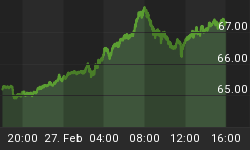On June 12 more than 70 renowned internet professionals, including legendary celebrities, signed an open letter to the President of the European Parliament, arguing against unreasonably invasive measures contemplated by the European Union (EU) against internet providers and users.
The letter is signed by luminaries including internet pioneer Vint Cerf, the "father of the web" Tim Berners-Lee, Wikipedia co-founder Jimmy Wales, Internet Archive founder Brewster Kahle, and cryptography expert Bruce Schneier. The signatories say:
"By requiring Internet platforms to perform automatic filtering all of the content that their users upload, Article 13 takes an unprecedented step towards the transformation of the Internet, from an open platform for sharing and innovation, into a tool for the automated surveillance and control of its users."
"[The] burden of Article 13 will fall most heavily on European startups and SMEs. The cost of putting in place the necessary automatic filtering technologies will be expensive and burdensome, and yet those technologies have still not developed to a point where their reliability can be guaranteed. Moreover, the legality of Article 13 has been questioned, for example by the Max Planck Institute for Innovation and Competition.
Article 13 is part of the Directive for Copyright in the Digital Single Market Directive, which was approved by the European Parliament's Committee on Legal Affairs yesterday, June 20. The bill will now go to the wider European Parliament to vote on in July.
A BBC News headline says it all: "'Disastrous' copyright bill vote approved." Creative Commons, an organization that promotes free-to-share content, denounced "a disturbing path toward increasing control of the web to benefit powerful rights holders at the expense of the open internet, freedom of expression, and the rights of users and the public interest in the digital environment." Related: Why We Should Be Worried About Europe’s New Copyright Laws
"[The] committee voted against nearly all measures that would attempt to grant more rights to users, such as commonsense proposals for limitations and exceptions for freedom of panorama and user generated content."
The result is easy to predict: Once the bill enters in force, many internet companies and content providers will be forced to leave the EU, or even to refuse service to users in the EU.
What can be done now?
"[We] cannot support Article 13, which would mandate Internet platforms to embed an automated infrastructure for monitoring and censorship deep into their networks," the signatories of the open letter argued in vain.
"For the sake of the Internet’s future, we urge you to vote for the deletion of this proposal."
Now that the proposal is moving forward, what can we - internet developers, operators, and users - do?
The EU bureaucracy is under increasing internal pressure to abandon its control-freakery and revise its heavy-handed regulatory approach, but that doesn't seem likely to happen without stronger pressure, or soon.
I think we should now realize that the once open and free internet has been taken hostage, and prepare to take it back. Internet developers, operators and users should develop, deploy and use decentralized alternatives to today's internet, more difficult for the state to control.
By Giulio Prisco via Crypto Insider
More Top Reads From Safehaven.com:
















